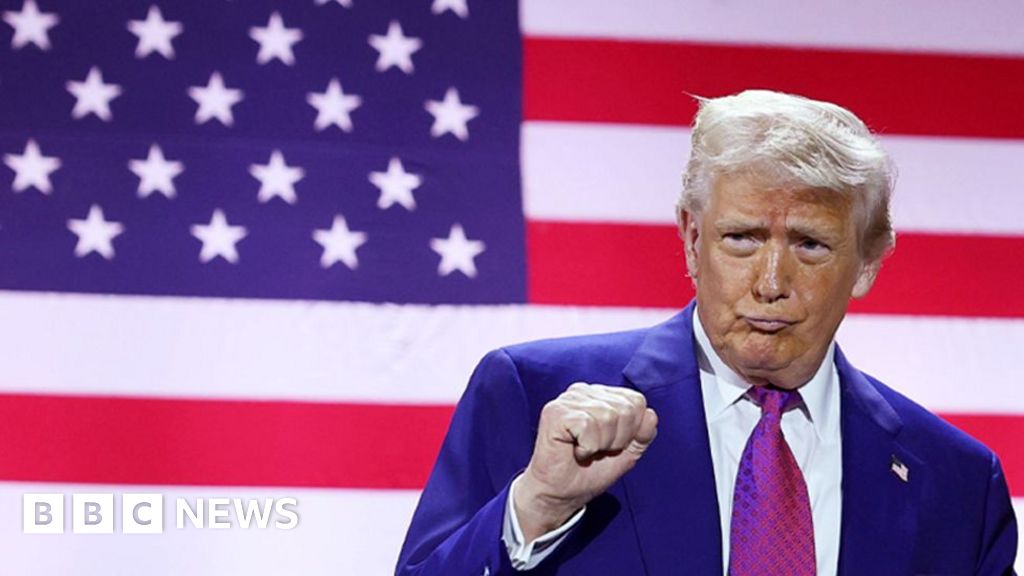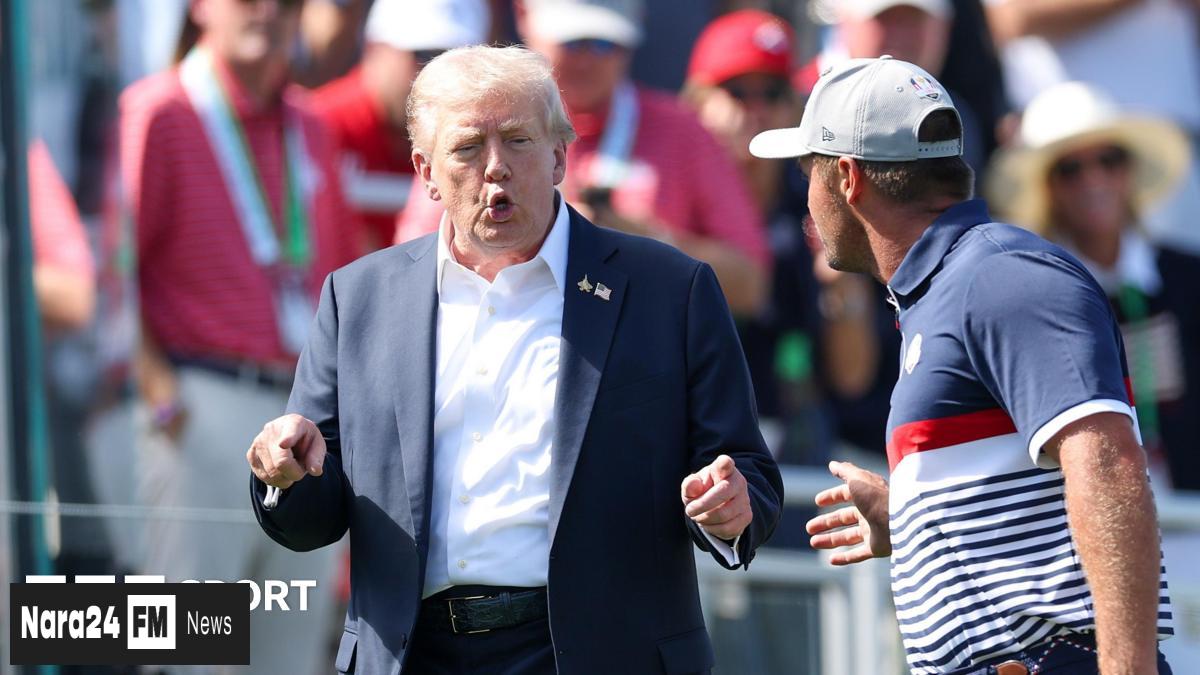Are Tariffs Truly Fueling the US Economy? A Closer Look at Trump's Investment Claims
US President Donald Trump has often touted tariffs as his "favorite word" while expressing a deep interest in business investment. Recently, he claimed that over $12 trillion (£8.8 trillion) in investments had been "practically committed" during his presidency, attributing this figure to his policies on tariffs, tax reductions, and deregulation. If accurate, this amount would be remarkable, potentially exceeding the approximately $4 trillion in gross private investment reported in the previous year.
However, the question remains: Is this surge in business spending paving the way for a prosperous economic era, or is it merely political rhetoric? It is still early in Trump's administration to have definitive data to substantiate his claims, as the US government releases business investment statistics quarterly.
Data from January to March, which only covers two months of Trump's presidency, indicates a notable increase in business investment. Yet, analysts caution that this rise may be skewed by external factors, such as a prior strike at Boeing. According to economist Nick Bloom from Stanford University, the perceived impact of Trump's policies on investment appears to be incremental, rather than monumental. "We have hardly any data at this point, and much of the information we possess likely pertains to projects planned before Trump took office," he stated. "I suspect business investment may have slightly declined due to heightened uncertainty, which typically causes a pause in spending."
Take Swiss pharmaceutical giant Roche, which announced a $50 billion investment in the US over five years in April. Some of these projects were already in progress, and company executives have expressed concerns that certain Trump policies, particularly those related to drug pricing, could jeopardize their plans. "The pharmaceutical industry will need to reassess its expenses, including investments," the firm remarked.
Throughout his presidency, Trump has pointed to investment commitments from prominent companies like Apple and Hyundai to bolster his narrative. The White House maintains a continuous tally of these investment announcements, which stood at approximately $5.3 trillion at the beginning of June—still significantly lower than Trump's claims. Additionally, this figure is inflated; around a third of the investments listed were already in motion prior to Trump's inauguration. For instance, US manufacturer Corning is highlighted for a $1.5 billion investment, but a substantial portion of this was announced in early 2024.
As of mid-May, analysts from Goldman Sachs estimated that actual new investments stemming from these announcements were closer to $134 billion. When accounting for the likelihood of some projects not being realized or having been planned previously, this figure could dwindle to as little as $30 billion, excluding investments backed by foreign governments. "While not insignificant, these increases fall well short of the headlines," their report concluded.
When approached about these figures, White House spokesman Kush Desai dismissed concerns regarding discrepancies between the administration's claims and reality. "The Trump administration is employing a multifaceted approach to stimulate investment in the United States... and no amount of nitpicking can dispute that it’s yielding positive results," he stated, emphasizing that many firms have credited Trump and his policies for influencing their investment strategies.
The BBC reached out to more than two dozen companies featured on the White House investment list. Many did not respond or referenced earlier statements, while others acknowledged that some projects predated the current administration.
Political and corporate exaggeration is not uncommon; however, the Trump administration's aggressive economic interventions have encouraged firms to amplify their plans in ways that may enhance the president's image. Martin Chorzempa from the Peterson Institute for International Economics noted, "A firm announcing a project can gain immediate benefits while not being held to those commitments if circumstances change. There is a strong incentive for companies to present as many investment figures as possible."
While Trump’s policies may be influencing investment patterns, the extent of their impact remains limited. The threats from tariffs, for instance, have indeed prompted pharmaceutical companies to consider increased domestic manufacturing, which is crucial for their profitability. Yet, these investments are expected to unfold gradually over many years and are coming from firms primarily involved in branded drugs, rather than the generic medicines that many Americans rely on, which are produced overseas.








Comments (0)
Leave a Comment
Be the first to comment on this article!